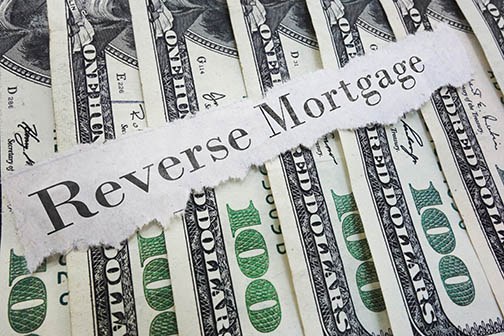Understanding the Reverse Mortgage and How to Use It to Pay Off a Regular Mortgage
 There are a variety of mortgage products out there that serve the needs of different homeowners, but for the uninitiated it can be hard to know what will work best for them. If you happen to be close to retirement and are looking at options that will be more financially beneficial for you, here are the details on a reverse mortgage and how this product can work for you.
There are a variety of mortgage products out there that serve the needs of different homeowners, but for the uninitiated it can be hard to know what will work best for them. If you happen to be close to retirement and are looking at options that will be more financially beneficial for you, here are the details on a reverse mortgage and how this product can work for you.
The Details On A Reverse Mortgage
A reverse mortgage may be one of the lesser-known products available on the market, but it was created in 2009 as the Home Equity Conversion Mortgage for Purchase (HECM) following the 2008 recession. While this type of mortgage is only available to homeowners who are 62 or older, it offers a way for people to tap into the equity of their home so that they are not required to pay monthly mortgage payments. There are limitations imposed on this product, but this can be useful for many homeowners.
What’s Required To Apply?
In order to utilize this mortgage product, the homeowner must have paid off their property entirely or have a significant amount of equity in their current home. As people who want to use a reverse mortgage will have to go through a credit check, they will have to be able to prove that they have the ability to pay for all the fees associated with home ownership. This can include common expenses like insurance, property tax and any other applicable charges that come with a monthly mortgage payment.
How You Can Use It
A reverse mortgage can be confusing to understand, but for those who want to receive monthly payments, get a lump sum payment from their equity or even access a line of credit, it can be a means of tapping into additional funds. While this means that the overall loan balance of the mortgage can increase over time due to interest and insurance not being paid consistently, these expenses will be taken care of once the owner has passed away when the property can be sold or the loan balance is paid.
A reverse mortgage can be a beneficial product for many homeowners, but it’s important to be aware of the associated costs involved to determine if this product is beneficial for you. If you’re currently considering a reverse mortgage, contact one of our mortgage professionals for more information.

 There was a time when a higher percentage of people were married before they committed to buying a home together, but it’s a lot more common to co-habit and invest in a home together. If you’re considering the commitment of a mortgage without being married, here are some things to be aware of before you start searching the market.
There was a time when a higher percentage of people were married before they committed to buying a home together, but it’s a lot more common to co-habit and invest in a home together. If you’re considering the commitment of a mortgage without being married, here are some things to be aware of before you start searching the market. Many people forego a mortgage broker and decide to go through the application process on their own, but a mortgage professional can actually work to save you money when it comes to your biggest investment. Whether you’re new to the market and are looking for tips or are just a prospective buyer in need of advice, here are a few reasons you may want to consult a broker to make for an improved real estate investment.
Many people forego a mortgage broker and decide to go through the application process on their own, but a mortgage professional can actually work to save you money when it comes to your biggest investment. Whether you’re new to the market and are looking for tips or are just a prospective buyer in need of advice, here are a few reasons you may want to consult a broker to make for an improved real estate investment.